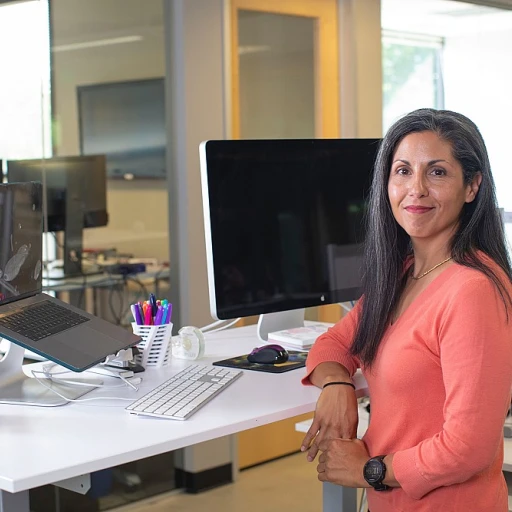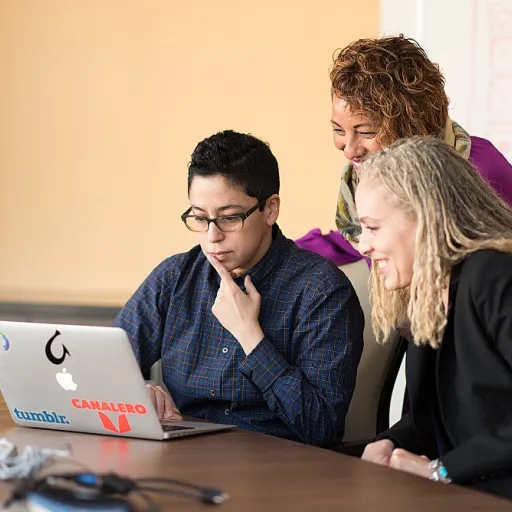
Understanding the Mentor-Mentee Relationship
The Foundation of Mentor-Mentee Dynamics
The mentor-mentee relationship serves as the bedrock of professional mentoring, often likened to the classical tradition of passing a torch—handing down knowledge and wisdom, much like how august figures in classical education did centuries ago. It echoes the pedagogical traditions of Plato and Lewis, reshaped to fit modern educational contexts. This relationship is a dance of giving and receiving; where the mentor, akin to the scribe passing their classics, shares insights and facilitates growth, while the mentee actively engages, ready to receive guidance and nurture their professional journey.
In this dynamic, the mentor steps into a dual role: the educator and guide, facilitating the development of their protege not unlike the apprenticeships of Christian and classical liberal arts education. While historically the mentor in a liberal arts setting would pass down their wisdom, modern mentors might conceptualize their insights into frameworks and methodologies inspired by thinkers like Markos. Such an approach adapts traditional wisdom for use in dynamic, contemporary workplaces.
For this relationship to flourish, it requires mutual respect and a shared understanding of goals. It is essential to recognize that both parties bring valuable perspectives and experiences to their interactions. The mentor, drawing on their experience, must respect the mentee's burgeoning ideas, much like the professors of English and other fields nurture students' unique perspectives. Equally, the mentee must value the mentor's accumulated knowledge without preconceived notions, as each session represents a chapter in a longer, ever-unfolding book of learning.
Challenges do exist and will be addressed further, but the establishment of a strong foundation greatly mitigates them. Timing, balance, and the blending of different viewpoints all play crucial roles in fostering a synergistic mentor-mentee partnership. For those looking to dive deeper into building the right mentor relationship dynamic, understanding the entire context of professional mentoring is critical. Explore more about how this guiding coalition shapes success on a broader scale here.
The Importance of Knowledge Transfer
Unearthing the Essence of Knowledge Sharing
In the realm of professional mentoring, knowledge transfer stands as a pivotal cog in the machine. It transcends merely sharing information or skills; it's about cultivating wisdom. Like an artist delicately passing the torch of inspiration, mentors imbue mentees with the rich tapestry of experience, insights, and practical wisdom acquired over years of dedication.
The process of knowledge transfer is not limited to a single industry or field. Whether the focus is classical education or modern disciplines, the principles of effective mentoring remain largely consistent. Consider the fields of liberal arts and christian education, for example. The wisdom of ancient philosophical minds such as Plato and Augustine can be contrasted with modern scholars like Louis Markos, whose works delve into classical Christian thought. These perspectives offer mentees a comprehensive understanding of the subject, fostering their intellectual and personal growth.
Cultivating a Culture of Learning
To ensure that knowledge transfer is effective, mentors must create a conducive environment for learning—a haven where curiosity is nurtured, and questions are encouraged. This is reflective of the kind of nurturing found within the pages of an educational book or the teachings of a professor grounded in English or other classical disciplines.
The role of the mentor is akin to that of a scholar-in-residence, using their platform to kindle the flame of lifelong learning within mentees. A successful transfer of knowledge often hinges on the mentor’s ability to bridge the gap between classical teachings and modern applications, enabling mentees to navigate the complexities of their professional pathways.
Pathways to effective knowledge transfer can be likened to traversing the winding narratives found in books by authors like Sayers and Mason. These authors illustrate the duality of learning—drawing from the past while paving roads for the future, similar to book Markos work on classical Christian views.
Nurturing Relationships Through Shared Wisdom
Ultimately, the success of mentoring lies not just in the wealth of knowledge imparted but in the relationships forged throughout the journey. The mentor-mentee relationship is symbiotic, a nuanced dance that can harmonize with the vision of professional growth and personal development.
As mentors pass the torch of wisdom, they also shape the very fabric of the fields they operate within. Drawing inspiration from various sources—be it classical, liberal arts, or modern education—mentors become vessels of transformation, guiding mentees to light their own torch with the same zeal and fervor.
For more insights on how to build a supportive and effective mentoring environment, consider exploring building a strong guiding coalition in professional mentoring which enhances the collaborative potential of these profound relationships.
Strategies for Effective Mentoring
Crafting Effective Mentorship: Proven Tactics
In the realm of professional mentoring, strategies are akin to the roadmap guiding both mentor and mentee through the intricate journey of development. Drawing from classical and modern methodologies, effective mentoring can be viewed as an educational torch passing from one generation to the next. The essence of successful mentoring often lies in the balance of structure and flexibility. Here are some strategies that exemplify this balance:- Goal Setting: Establishing clear and achievable goals at the outset is vital. These goals should not only align with the mentee's career aspirations but also resonate with the wisdom shared by mentoring greats like Markos in their extensive works on education and mentorship. Clear objectives offer a vision of success and provide a framework within which knowledge transfer can occur effectively.
- Embracing Classical Learning Approaches: Incorporating insights from classical education can enrich the mentoring process. Authors and philosophers throughout history, from Plato to modern scholars in residence, have emphasized the importance of engaging mentees through inquiry and dialogue, reflecting the methods of liberal arts education.
- Open Communication Channels: Regular, open, and honest communication between mentor and mentee fosters a trustworthy relationship. This approach mirrors the dialogues of Lewis and Augustine, who highlighted the value of transparency in passing knowledge.
- Utilizing Literature and Resources: Encouraging the exploration of books and literature can broaden the mentee’s perspective. Mentors can inspire mentees by recommending works that have shaped their own understanding, such as the writings of Sayers and others within the canon of English literature.
- Harnessing Group Wisdom: Engaging in group mentoring sessions can amplify the benefits of mentorship. The power of collective wisdom is immense and can be harnessed to provide a richer learning experience. Mentoring programs that leverage group insights have been successful in diverse settings, as highlighted here.
Challenges in Professional Mentoring
Navigating Common Obstacles in Mentoring
Mentoring, akin to passing the torch in a relay, is not without its hurdles. The delicate relationship between mentor and mentee entails navigating unique challenges that demand attention and strategic thinking. Below are some of the common obstacles mentors may face in professional settings:- Communication Barriers: Misunderstandings can arise when mentors and mentees come from different educational backgrounds, such as those steeped in classical education or modern education. Bridging gaps requires patience and a mutual understanding of each other's perspectives and needs.
- Aligning Expectations: Discrepancies between what a mentor aims to impart and what a mentee expects to gain can become a source of friction. Establishing clarity from the outset is crucial. Craft approaches that respect both the classical christian view and the realities of modern professional settings.
- Time Management: Finding ample time for nurturing mentees amidst a busy schedule can challenge mentors who juggle multiple responsibilities. Effective time management strategies help ensure that this 'torch' of knowledge is passed without feeling rushed or superficial.
- Mismatched Pairings: Not every mentor-mentee pairing is bound to be successful. Mismatched personalities or incompatible teaching and learning styles may hinder progress. Identifying these issues early allows for adjustments, such as introducing the mentee to another mentor.
- Balancing Guidance and Independence: Striking the right balance between guiding a mentee and allowing them autonomy can be testing. As seasoned professionals pass on their insights, they must also foster independence, enabling the mentee to flourish in their own right, as noted in many books and frameworks on mentorship.
The Role of Feedback in Mentoring
Feedback as a Pillar of Progress
Feedback holds a prominent place in the sphere of professional mentoring. It is through thoughtful feedback that mentors pass the complex torch of knowledge to their mentees, paving the path of educational growth. This exchange resonates with principles engrained in both classical and modern education paradigms, reminiscent of the dialogues presented in texts by authors associated with liberal arts disciplines. Engaging in effective feedback involves a balance of encouragement and constructive criticism. Here are key elements to consider:- Constructive Criticism: Feedback is not merely criticism but an avenue for growth. This mirrors philosophies articulated in educational works, where mentoring serves as a conduit for developing skills akin to those discussed in classical texts by authors noted for their contributions to critical thinking.
- Consistent and Timely: Timing and consistency are vital. Much like the teachings present in the writings of classical and christian education figures, timely feedback can prevent misunderstandings and foster a continued passing of the educational torch.
- Encouragement: Positive reinforcement is important. Highlighting achievements, similar to how scholars might commend achievements in classical works, can bolster a mentee's confidence and motivation.
- Structured Reflection: Feedback should encourage mentees to reflect critically on their experiences, a practice championed by professors of english and champions of liberal arts.













